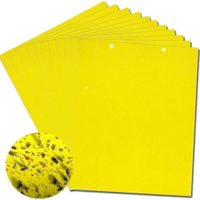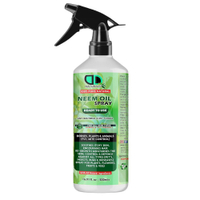How to get rid of tiny black flies in the house, according to pest control experts
Are you seeing tiny black flies floating around your home? Discover the various reasons they might be appearing and methods to get rid of them
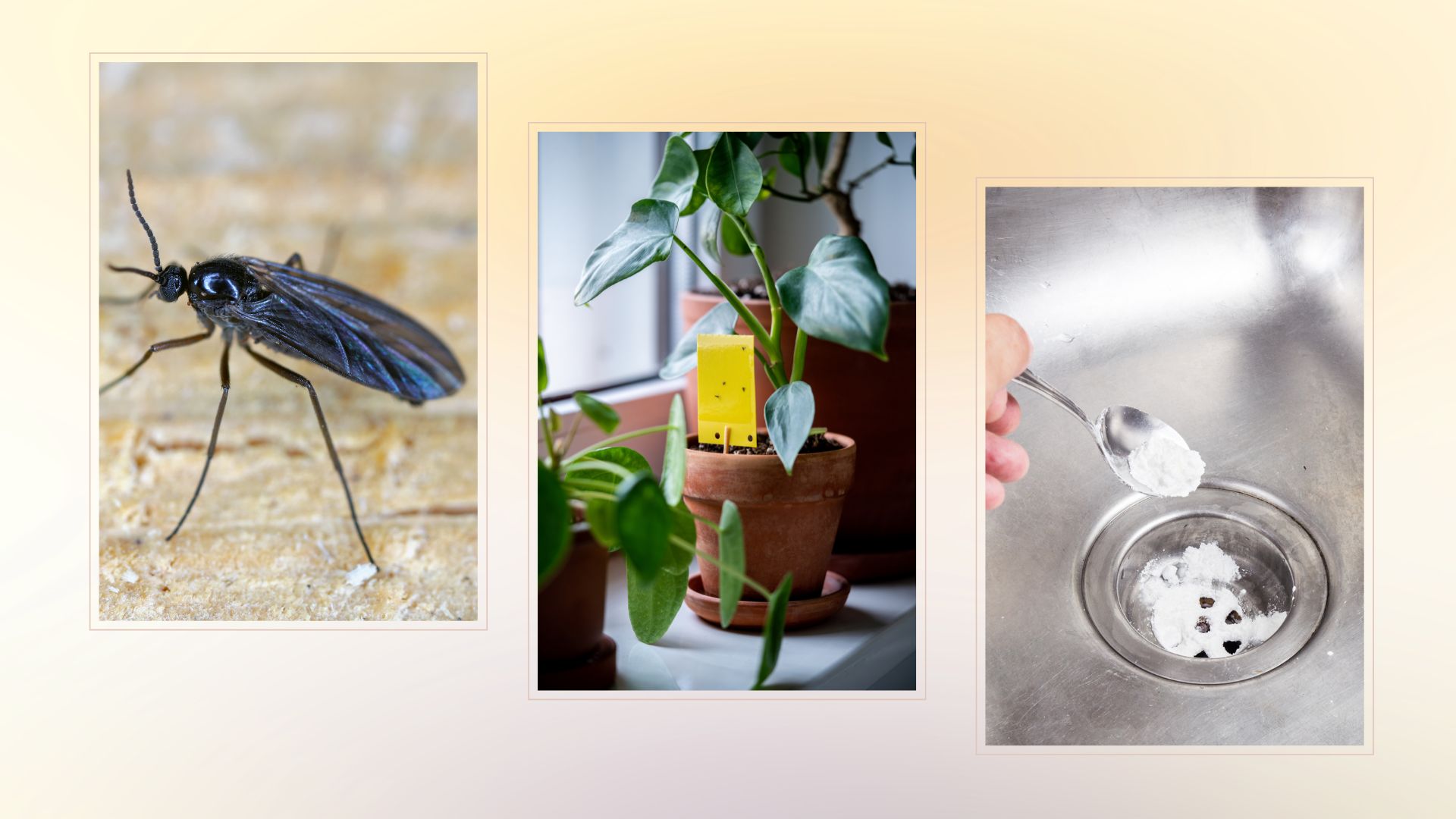

Have you noticed those tiny black flies that seem to hang around your plants, drains and bins? Turns out they are not fruit flies, they're called fungus gnats and luckily there are a few ways to get rid of them.
Whilst you might have figured out how to get rid of flies, these smaller more inconspicuous black flies tend to linger around your flowers, houseplants and drains. If you've ever wondered why your flowers are attracting little black flies it can be down to several reasons, the most common being a decomposing smell and excess of moisture.
So despite knowing all there is to know about getting rid of fruit flies, there are alternative expert-recommended tips to banish fungus gnats, no matter where they pop up around your home.
How to get rid of little black flies: 5 expert-recommended tips
Sticking to your daily habits to keep your home clean and tidy is normally enough to get the flies away, however, gnats are drawn to things other than mess. They love decaying flowers, houseplants, clogged drains, excess moisture and even your unwrung wet dishcloth.
That is why it's key to have some anti-gnat hacks under your sleeve for the next time you see pests flying around your home and bugging your plant life. Pardon the pun.
1. Food traps
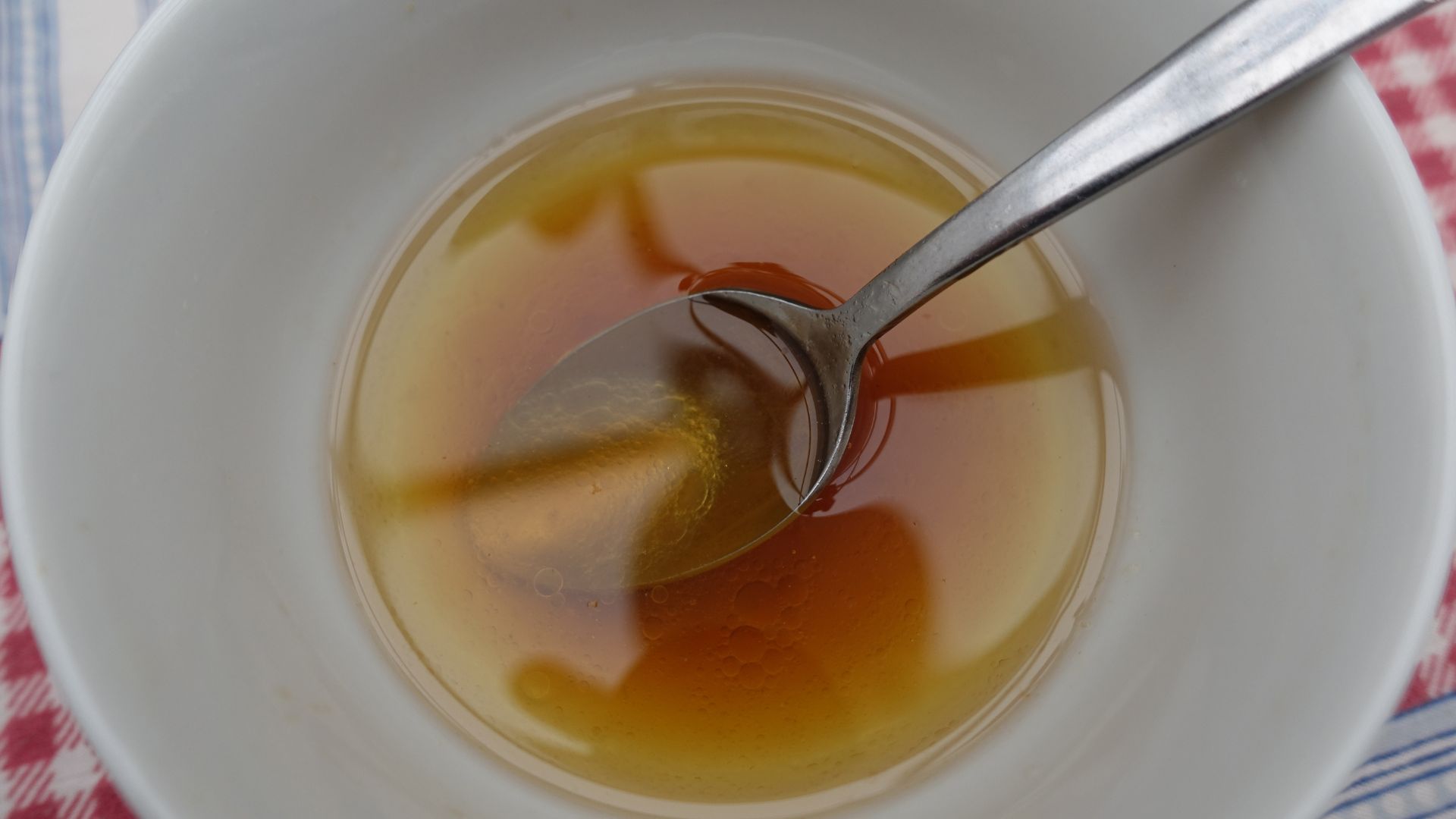
Since discovering why my flowers were attracting black flies it's clear gnats are drawn to odours that smell like food, anything rotting or decaying will draw them in. So laying food traps for them is an extremely effective method to help get rid of them.
"Mix 2 tablespoons of apple cider vinegar with a tablespoon of sugar, half a cup of warm water, and a few drops of dishwashing detergent," instructs Jordan Foster, a pest control expert at Fantastic Pest Control.
Sign up to our free daily email for the latest royal and entertainment news, interesting opinion, expert advice on styling and beauty trends, and no-nonsense guides to the health and wellness questions you want answered.
"As soon as the mixture is ready, pour a little bit into a couple of small containers, such as jar lids. Place the baits near the areas where gnats are present. When gnats come in contact with the sugary traps, they will die."
He also recommends doing the same with a wine and dishwashing liquid solution, the gnats will also be drawn to this just like the vinegar.
Failing that why not try a similar trick with fruit? Jordan says, "In a bowl, place a piece of fruit that is heading for the garbage, cover it with plastic wrap, and finally poke a few holes in it. Insects will enter through the holes, lured by the rotten fruit, but they will not be able to escape."
Is your fruit of choice bananas? Don't forget that you can also then use bananas in your garden to help plants after you have used them in your trap.
2. Fly strips
If your home is filled with the best fragrant plants to make your house smell good, then you might want to be a little more ruthless with your best control options.
Ryan Fowley, pest control expert at Excel Pest Services says when dealing with adult gnats a few yellow sticky traps around your home or where you've noticed they fly around more is really helpful. Whilst you work on preventative methods these traps can eliminate the ones already flying and getting in your way.
Yellow Sticky Fly Traps: £8.98 at Amazon
Looking to get rid of fungus gnats without breaking the bank or taking up too much space? These 6x8 inch dual-side sticky fly catchers are the perfect solution to keep your space buzz-free. You can even cut them smaller should you want to be a little more discreet!
3. Keep spaces clean and tidy
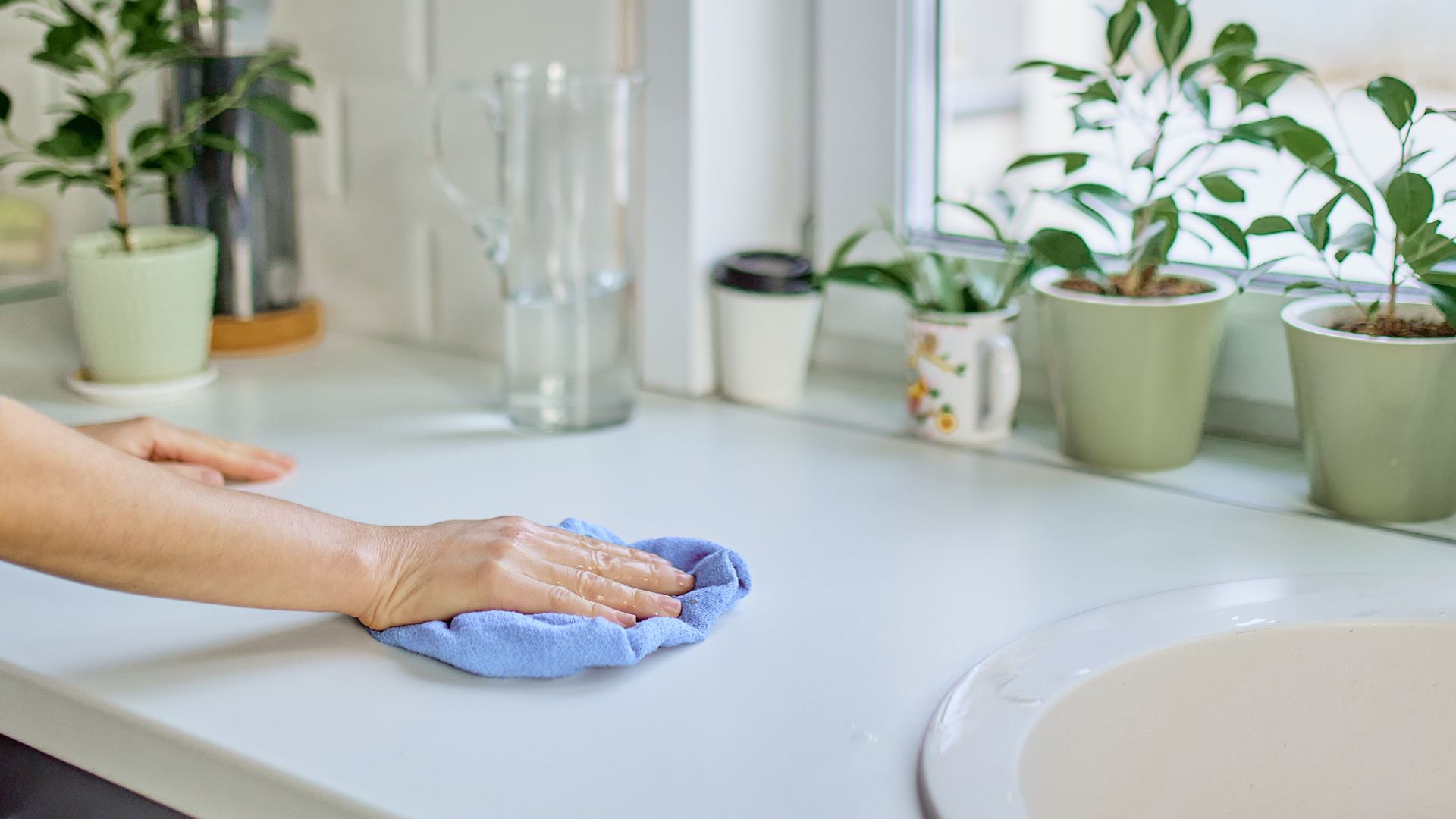
Whilst it may seem obvious following your kitchen cleaning routine amongst others will make a huge difference in how many fungus gnats you see in your home. Disposing of food, rubbish and spills as quickly as possible will take away the gnat's food source and kill them before they can cause any more havoc on your plants.
"To prevent gnats in the kitchen, you will need to eliminate their breeding grounds and create an environment that discourages them from infesting. Maintain a clean and tidy kitchen. Gnats are attracted to decaying organic matter, so clean up spills and crumbs immediately," says Jordan.
More specifically make sure you don't have any overripe fruits or vegetables as they are one of the biggest things gnats are attracted to, instead keep these in the fridge in air-tight containers. This is also important if you're looking at how to make your kitchen smell good!
It's also important to keep your drains clear, gnats are attracted to stagnant water so any blockages or leaks around your pipes will cause them to breed.
Knowing how to clean a kitchen sink drain ensures your kitchen is no ground zero for a gnat infestation.
4. Prioritise plant care
You might have found yourself asking how often you should water your houseplants or even why your plant is growing mould on its soil. Well, overwatering can cause a lot of problems for your plants and attracting gnats is one of them.
Jordan points out that overwatered plants can create moist environments where gnats lay their eggs. It's important that in between watering sessions, you let the soil dry out unless you're figuring out how to care for an orchid, then it's definitely a whole different ball game!
It's not just watering though, because gnats tend to lay eggs in your houseplant's soil Ryan would recommend using Bacillus thuringiensis which is a common pesticide and should keep the pests away. Otherwise, neem oil treatments are great for targeting and killing any pre-existing larvae in your plant's soil.
DD Organic Neem Oil: £12.49 at Amazon
If you want to make sure no gnat larvae are reaping the rewards of your green thumb then applying this neem oil to the soil and stems is a great deterrent. It also has fungicidal properties which will keep your plants safe from fungal diseases like leaf spot.
5. Get rid of excess moisture
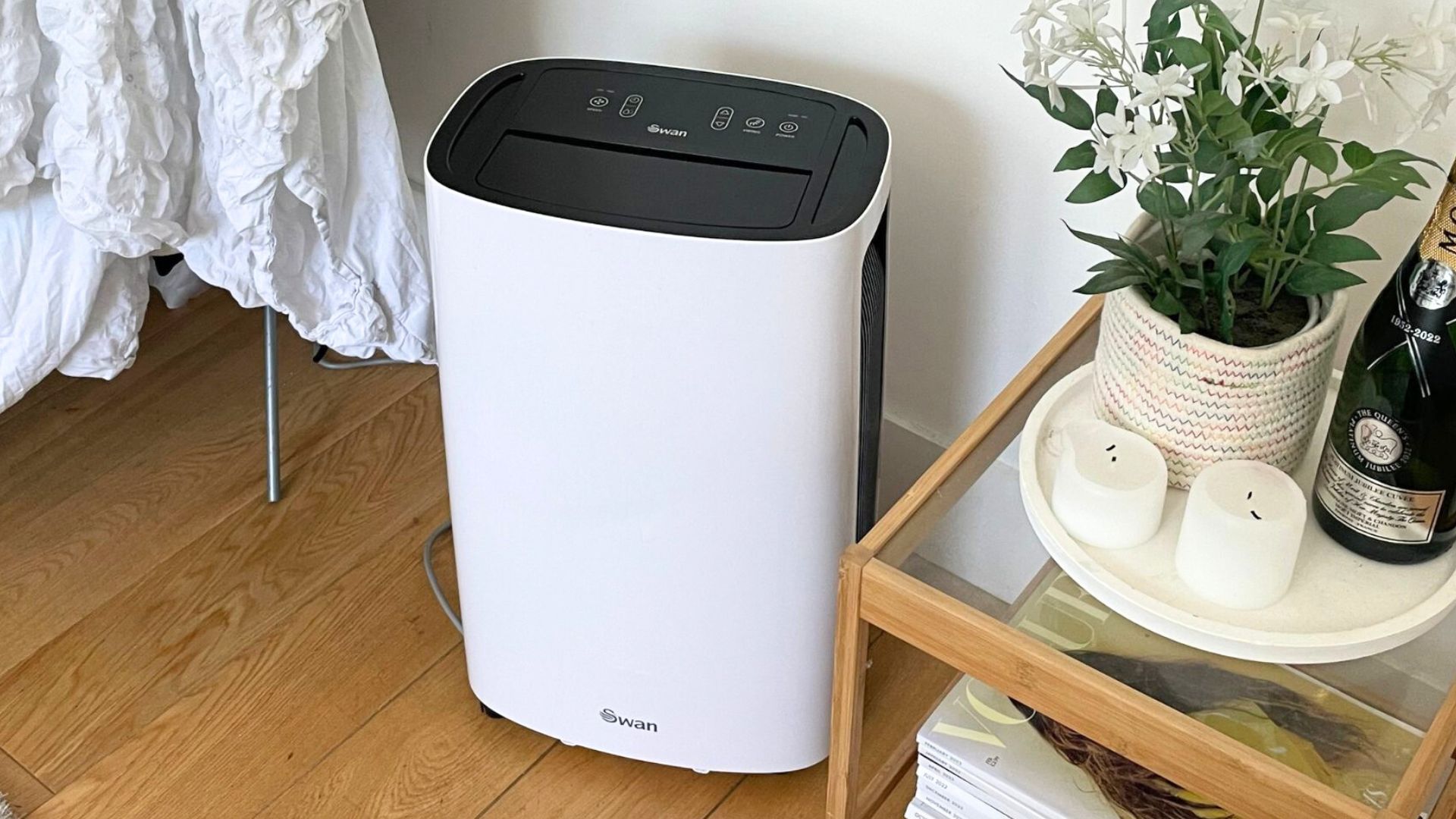
Similar to how gnats are attracted to the extra moisture on your plants, moisture anywhere else will also be an issue. This is why Ryan recommends making use of one of the best dehumidifiers which will effortlessly control the humidity in any room you're struggling with gnats.
"You can reduce the moisture in your home by making use of a humidifier, ensuring drains and bins around your home are cleaned regularly, adding dry materials like shredded paper and cardboard to your plant soil, and disposing of any rotting plants or vegetation in your home," says Ryan.
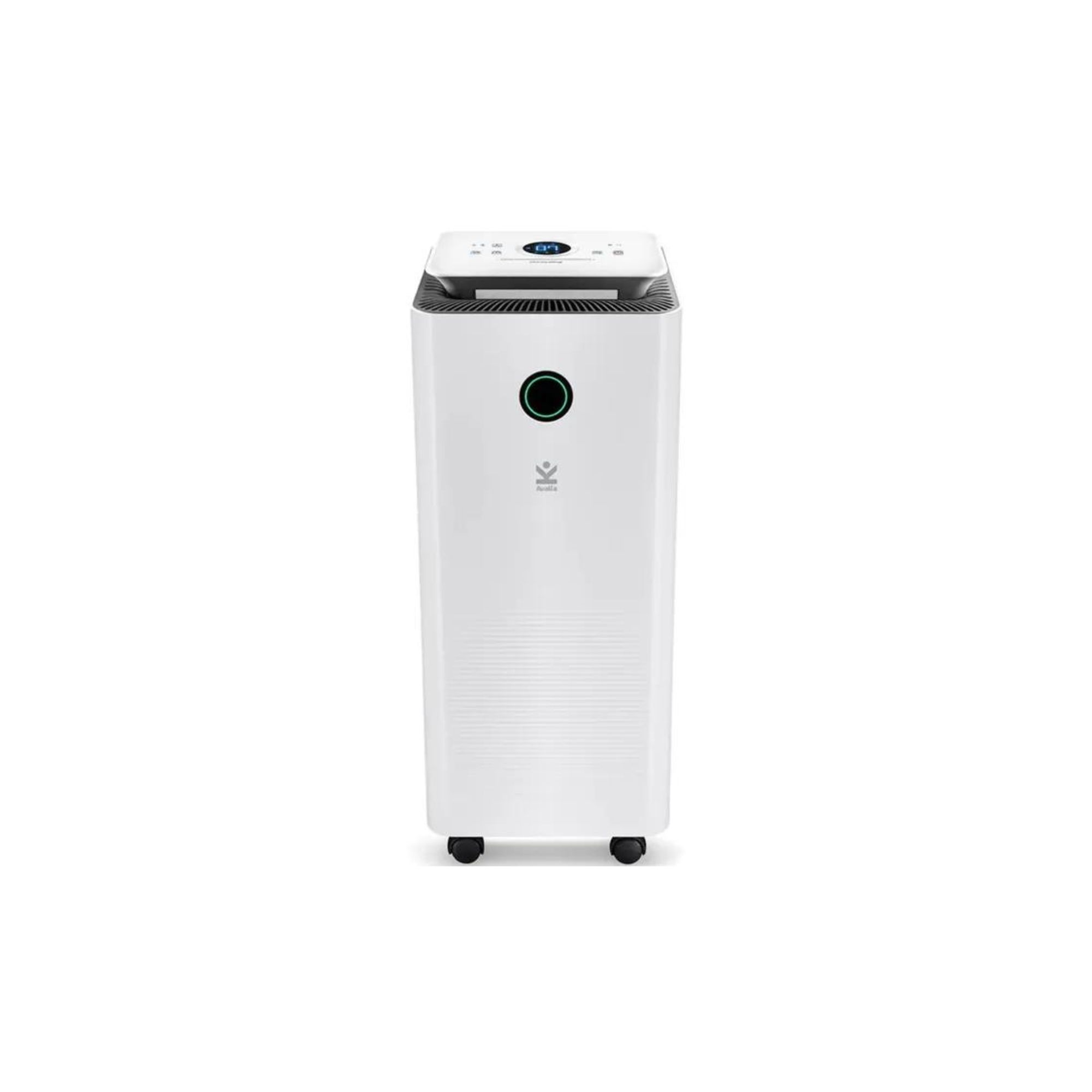
If you're looking for a dehumidifier that's large enough to hold at least 16L of water, sleek, space-saving, and will dry your laundry, the Avalla X-150 is the appliance for you. Our expert testers rated this model the best overall on our list.
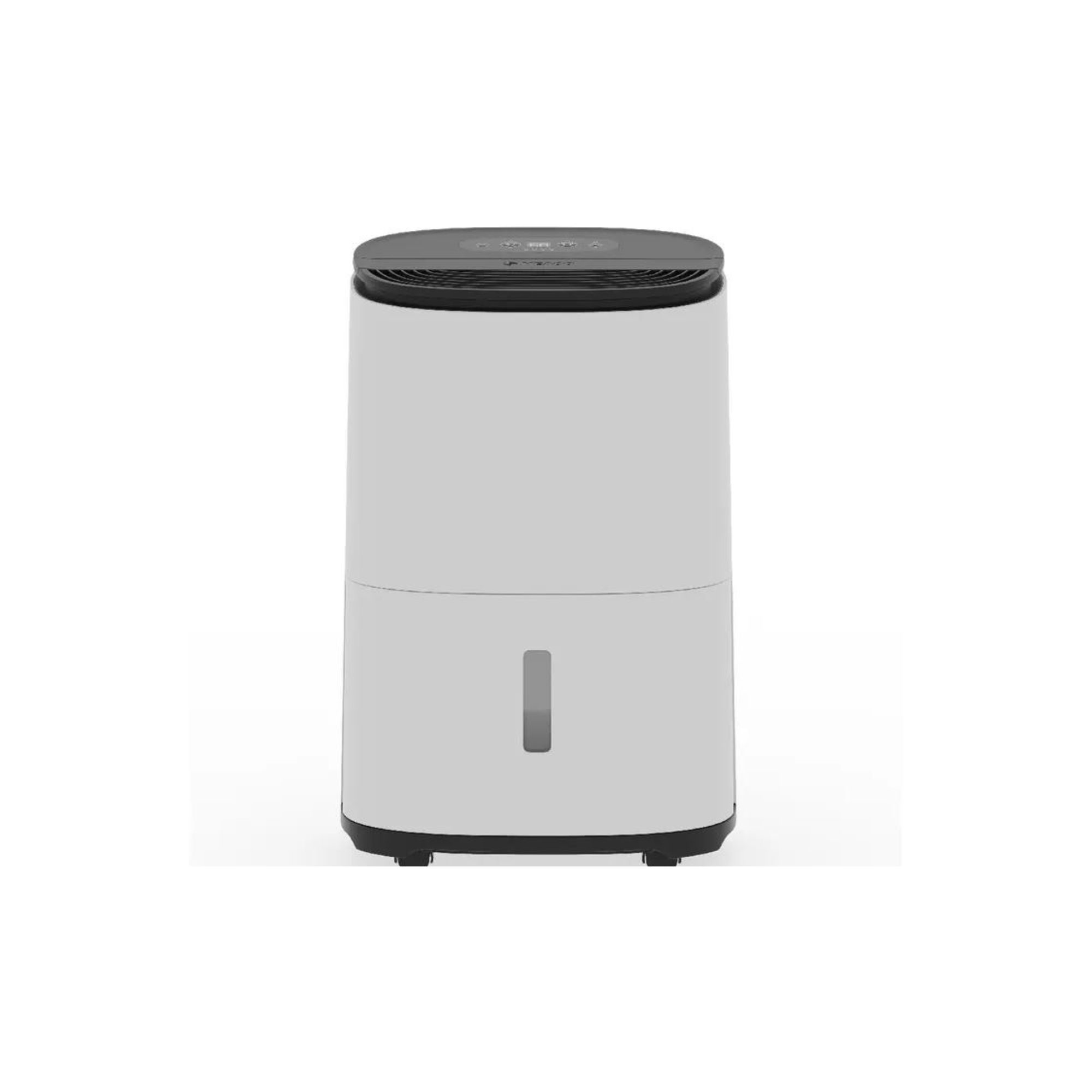
The well-respected MeacoDry Arete One is an all-around great dehumidifier plus our tester noted how simple and super easy it is to use. It is also quiet, so would make an ideal bedroom dehumidifier. It even has a laundry mode, handling your home's moisture and wet clothes.
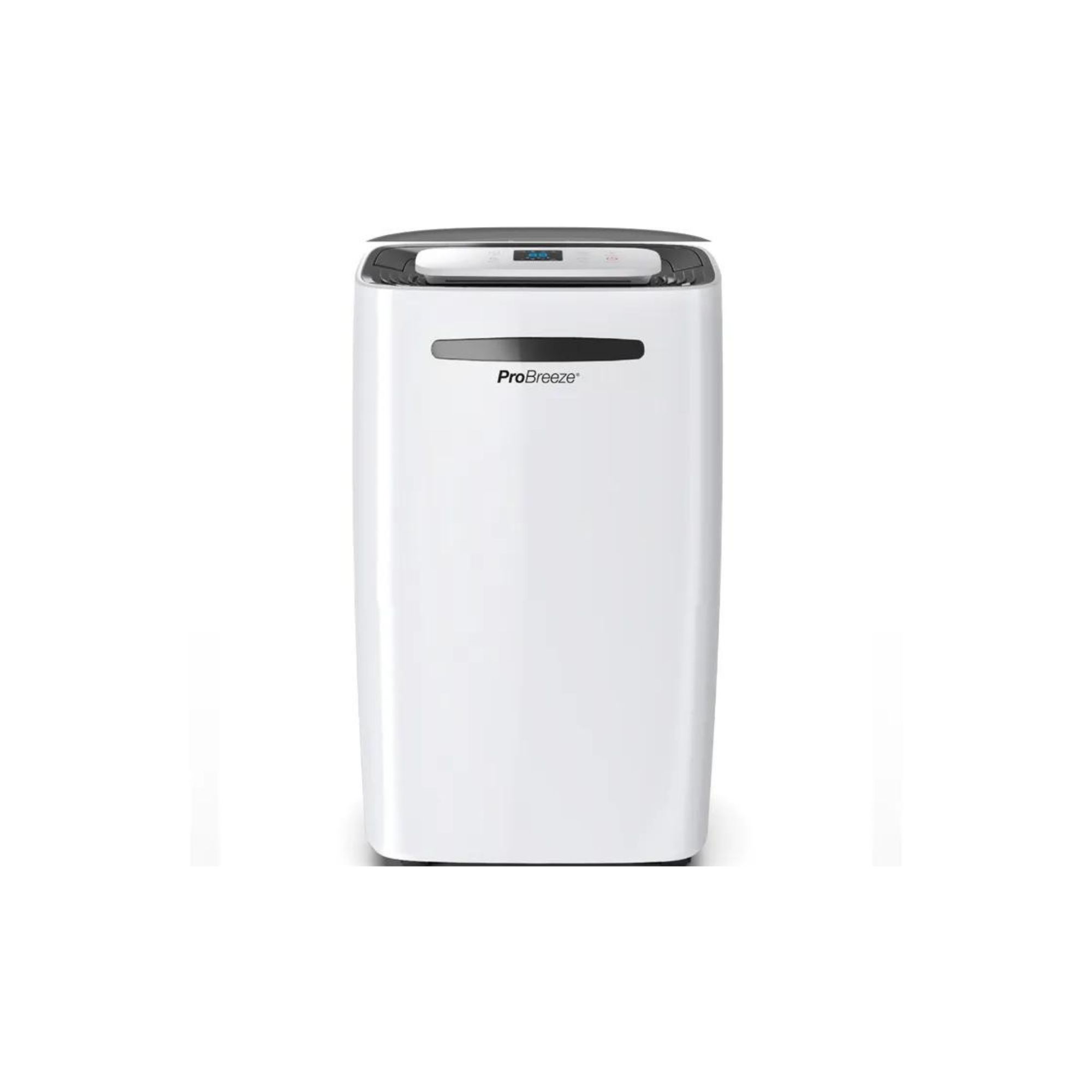
This generous Pro Breeze model boasts enough capacity of 5.5L of water, using the hose you could remove 20L per day from your largest, dampest room. This dehumidifier also has many other cool features that make it a valuable asset to any home looking to tackle damp air.
FAQs
Why do I have tiny little black flies in my house?
As mentioned previously, there can be many reasons these pesky little black flies have found a home in your space. And no matter how often you should be cleaning your home, it unfortunately doesn't take much for the pests to appear.
"Fungus gnats thrive in a damp atmosphere. Have you checked for a leak under the sink? Houseplants that are overwatered? Damp basements and crawl spaces? These areas are the perfect breeding ground for the moisture-loving gnats," says Rocky Vuong, Founder of Calibre Cleaning Ltd.
As well as damp, you should check your fruit bowls, flower bouquets, houseplants and bins for any signs of rotting or excess moisture. Once you've looked in all these spaces it's just a matter of choosing which solution you think will work the best depending on the location and size of the infestation.
Where do gnats congregate in the home?
When it comes to where you're most likely to find these annoying creatures, there are a few specific spots in your home where you've probably seen them congregating.
"Gnats tend to gather in areas that cater to their particular needs, they love the damp soil of the houseplants, especially if you overwater them. These tiny files lay their eggs in the moist soil and the larvae feed on the organic decaying matter," says Rocky.
He also points out that fruit bowls, overflowing rubbish bins and damp drains where there's an accumulation of moisture and organic matter. It's also important you don't ignore your bath mat when completing your bathroom cleaning routine, as the dampness can attract gnats too!
To be completely free of fungus gnats it's important to stay on top of your home maintenance and to regularly check for any out-of-date food, clogged drains and overwatered plants. By keeping on top of these checks you can ensure the gnats don't have an environment to survive in from the get-go.

Emily joined woman&home as a staff writer after finishing her MA in Magazine Journalism from City University in 2023. After writing various health and news content, she now specialises in lifestyle, covering unique cleaning hacks, gardening how-tos, and everything to help your houseplants thrive.
